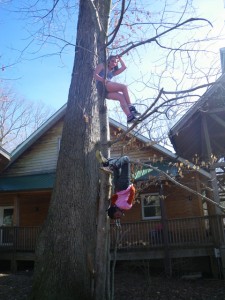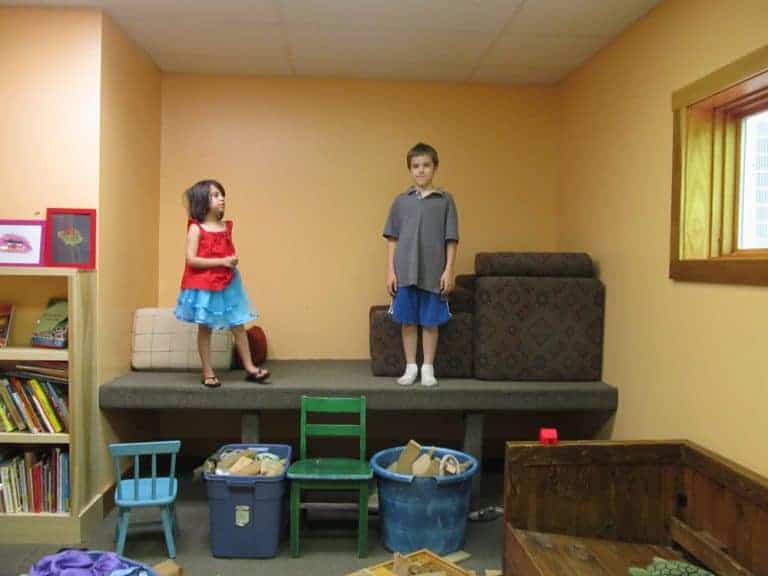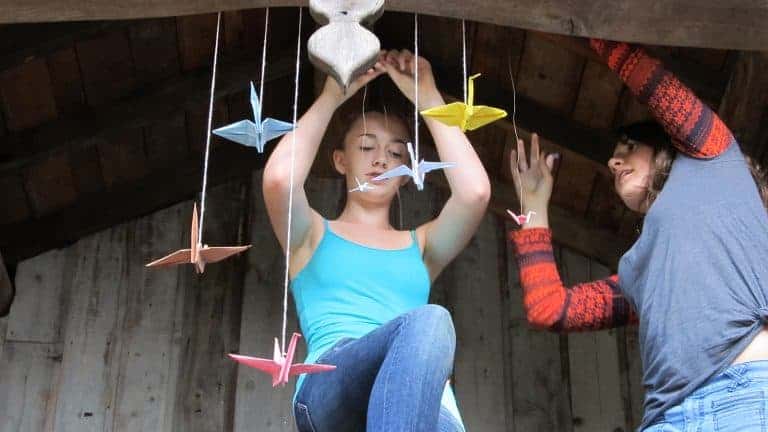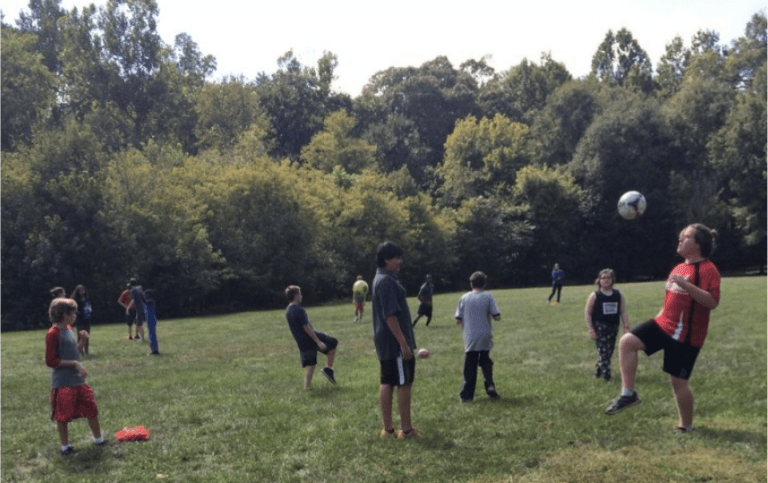Small To Large, Large To Small
 We often think in terms of “growing up at Fairhaven.” This month we’ve hosted and enrolled a number of younger students, and each one reminds me of what the arc of a Fairhaven career might feel like.
We often think in terms of “growing up at Fairhaven.” This month we’ve hosted and enrolled a number of younger students, and each one reminds me of what the arc of a Fairhaven career might feel like.
To our youngest students, the school must seem big in every way. We have twelve acres, with a forest. We have a veritable forest of older students to wander among and one day comprehend. We have two buildings with some twenty-odd rooms, not to mention the six bathrooms. The lawbook is huge. Young students who pass the computer certification also have limited access to the internet.
Then, one might ask, how large is a young person’s imagination? For surely they have unlimited access to it here. Whether through play, or books, or art room supplies, even our youngest students surf the endless wave of their own minds at play. So, yes, being a student at Fairhaven must seem enormous in many ways .
As they grow , our students learn their place in all of these areas. They learn the paths in the woods, often finding their favorite spots. They might master climbing the swingset poles. They become friends with students of all ages. They learn the rules, then learn to follow them. Always, it seems, they discover the contours of their creative worlds. Their worlds sing, they might splash green across a canvas, they might dance across the Chesapeake Room floor. Often, these young people play at being older. It might be “house” and she’s the mom. It might be “school,” and he’s the teacher. Cops and robbers, war games–the mind wanders.
Then, one day, they are older. Most years, at least one senior Fairhavener explains their bad mood to me by saying, “Fairhaven’s just not like it used to be.” I look at them: they used to play in the stream and now they’re a lifeguard. Or they used to ride the scooter down the hill and now they drive a car on food runs. They used to spend most of their time as a defendant in the Judicial Committee, and now they’re a JC Clerk . You get the picture.
By the time somebody leaves, the school seems small, and the big rest of the world beckons. They leave with their imaginations intact, with their creativity still keen. Mostly, they leave with a sense of mastery, over this place, over information and how to get it, over themselves, and, crucially, mastery over the fears about whatever awaits down the road. We can only wish them well, and look forward to seeing them when they come back to visit.
Maybe they’ll check out the newest, smallest students and remember their first days here. How big it used to be.
Mark McCaig
April, 2010


